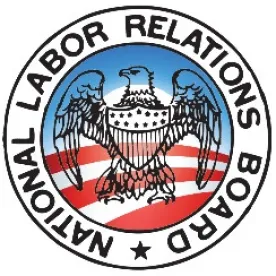The National Labor Relations Board has upheld an Administrative Law Judge’s decision to invalidate 11 severance agreements that provided payments to employees laid off shortly after an election in violation of the National Labor Relations Act. The 11 individuals were awarded full reinstatement and back pay. Terex, 366 N.L.R.B. No. 162 (Aug. 21, 2018). The Board found the factors set out in its decision in Independent Stave, 287 NLRB 740 (1987), weighed in favor of invalidating the severance agreements.
Thirteen permanently laid off employees in the employer’s paint department and welding and fabrication department were offered severance agreements that included severance pay to which they were not otherwise entitled. In exchange, the employees had to sign severance agreements containing broad release language, including that the employees would not pursue NLRB charges. Eleven signed.
Relying on Independent Stave, the NLRB upheld the ALJ’s decision to invalidate the severance agreements finding that they were “part and parcel of the [company’s] effort, through plantwide threats and a mass layoff, to prevent any of its production employees from winning union representation.” Moreover, the NLRB found that the company “laid off the [employees] with the unlawful motive of defeating the union,” and therefore should not be permitted to “rely on the severance agreements, which at a minimum facilitated its unlawful conduct.”
Independent Stave directs the NLRB to examine four factors when determining whether to give effect to non-Board settlements relating to unfair labor practice allegations. The four factors include:
(1) whether the parties to the Board case have agreed to be bound, and the position taken by the General Counsel regarding settlement; (2) whether the settlement is reasonable in light of the violations alleged, the risks inherent in litigation, and the stage of litigation; (3) whether there has been any fraud, coercion, or duress by any party in reaching the settlement; and (4) whether the respondent has a history of violating the Act or has previously breached settlement agreements.
The ALJ and Board found that factors (1), (2), and (4) weighed in favor of invalidating the severance agreements.
In dissent, Member Marvin Kaplan sharply disagreed with the majority’s application of the Independent Stave factors. Kaplan relied heavily on the fact that the employer had no prior NLRA violations and that the employees voluntarily entered into the severance agreements and, therefore, were free to reject it.
As this decision demonstrates, it is crucial that employers consider the Independent Stave factors prior to entering into any settlement or severance agreements that may include the waiver or release of unfair labor practices. The Board is fully prepared to extend its reach into private severance agreements that may not meet the intent of the NLRA and invalidate those agreements even when they were voluntarily entered into by employees.
contributed to this article.





 />i
/>i

